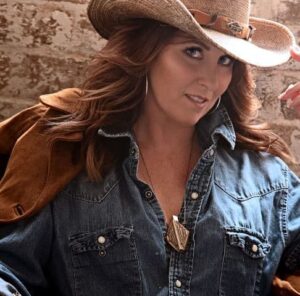In the last installment of this column, I wrote about the hidden stories we all hold inside, how you never know what’s in a person’s life story until you hear it.
That sentiment might lead you to the conclusion that I am a firm believer in the old credo, “don’t judge a book by its cover.”
Not exactly. The way I see it, that “cover” may not let people know where you’ve been, but it does show where your head’s at now.
Since National Review editor Rich Lowry has failed to accept my repeated (twice in nine years) public callouts to do weekly dueling “Lowry vs. Lowry” columns (in fairness, he may not be aware of the challenges, or of my existence for that matter), I am left to present the flip side to my own perspective.
Back in my teens I had a friend, Tony Nassar, who all the tests showed was a nearly off-the-scale genius. Suffice it to say, we had a lot in common, including bouts of social anxiety. I remember Tony told me once that the way he worked through it was when he found himself in a situation where he felt extra awkward, he tried to imagine that everyone there was in a play and they had invented their own characters. Somehow that set him at ease.
Over the years, it occurred to me that Tony’s little self-therapeutic fantasy wasn’t too far from the truth. We do, to some degree, create ourselves, or at least fashion ourselves, and no more so than with our appearance.
A few weeks ago, I met professional truck driver Ronald Feimster, who told me a bit about himself and his career. Like most of the truckers I meet, he loves being a driver, but he has a few pet peeves.
The one that grinds him the most is the low opinion people in our society have of truck drivers – “hated” is the word he used. I could understand his frustration. We’d just met, but my first impression was that Ronald was a man who is confident and comfortable in who he is and what he does, and that even if the world isn’t willing to grant him the appropriate respect, it has no bearing on his self-respect. I could see it in how he took care of himself, the way he spoke.
A lot of drivers I see look more like they’re trying to live down to society’s opinion, or maybe that opinion has pushed them down and they have resigned themselves to the fringes of society. It’s not just that they don’t look professional, they look like they’ve just plain given up on life and on themselves.
But before you think I’m picking on truck drivers, I also think they’re part of something that’s been going on in America for the last couple decades. I first noticed it back when it became trendy for young people not to tie their shoelaces. Then came the saggy pants and exposed underwear. Trend after trend seems designed to celebrate slovenly indifference and even self-hatred.
That’s the only reason I can think of for the boom in tattoos, piercings and other forms of mild self-mutilation in the name of a fashion statement.
So what is that statement – “what God gave me isn’t good enough, so watch me trash it”?
All this seems to coincide with the fall of the American middleclass way of life. It’s like a protest of sorts, a subconscious rejection of something, something that is undefined but is clearly depressed.
Americans love the concept of casual. But there’s a difference between being casual and being an outright slob. Forget about whether it’s “fair,” it doesn’t matter what experience or potential or dreams you have, first impressions matter, appearances matter. If a book’s cover didn’t matter, they wouldn’t put them in those bright, glossy dust jackets.
People always react better to someone who looks good and has an approachable personality. They can’t help themselves. Just the process of getting yourself all sharp makes you feel sharper, and the payoff is immediate. It’s the difference between the store clerk calling you “sir” or “ma’am” or saying, “Excuse me, may I help you?” like it’s an accusation. It’s the difference between the waitress who you can’t flag down to refill your coffee and the one who takes an extra minute to smile and chat.
Little moments like that add up, especially when you spend much of your day alone. After a while the world seems like a friendlier place. No, it doesn’t just seem friendlier, it is friendlier.
On the other hand, if you climb out of your cab looking like you’ve been hiding in the woods for a week, sauntering around with a look that says, “I just don’t care,” why should anyone else? That’s the character you’ve chosen for yourself, and people will accept you in that role.
I approached Ronald Feimster because he and the driver at the next table, Tim Plubell, were exchanging their views of the world. He looked open, friendly and like a guy who had his act together. They both did, and I wound up interviewing both of them. They were alike in some ways, different in others, but what they had in common was they both were confident and collected.
During our conversation, Ronald told me his goal was to become an owner-operator this year. Now, I just met the guy, we spent maybe a half hour together. I still know very little about him, But when I left, I was thinking, “I’ll bet he does it.”
If I hear anything, I’ll let you know. I don’t want to leave you on a cliffhanger.
Klint Lowry has been a journalist for over 20 years. Prior to that, he did all kinds work, including several that involved driving, though he never graduated to big rigs. He worked at newspapers in the Detroit, Tampa and Little Rock, Ark., areas before coming to The Trucker in 2017. Having experienced such constant change at home and at work, he felt a certain kinship to professional truck drivers. Because trucking is more than a career, it’s a way of life, Klint has always liked to focus on every aspect of the quality of truckers’ lives.










